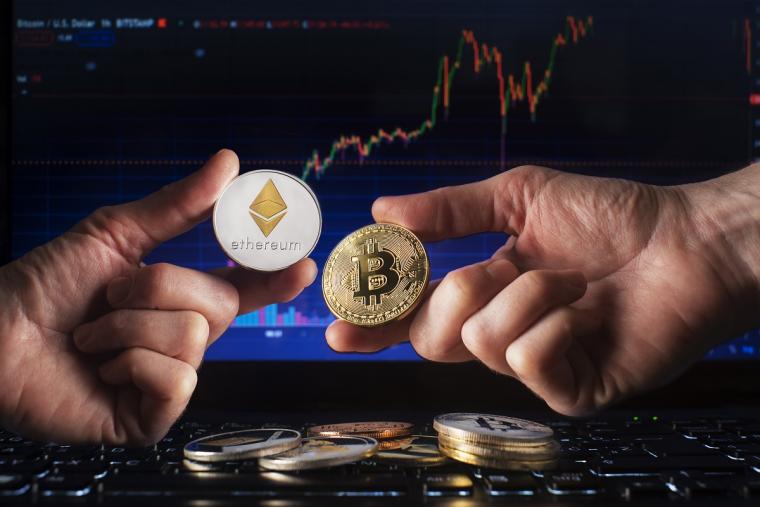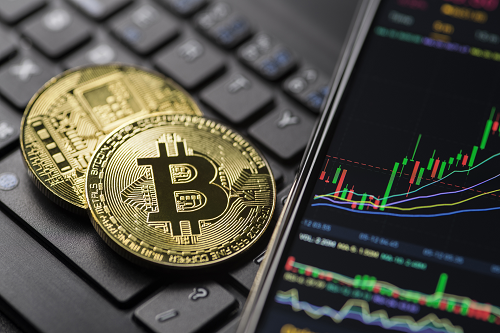

In a recent poll on the SDM website, nearly 70 percent of readers said they thought cryptocurrency, rather than becoming a viable option in sports payments, was a fad that would die out.
They might be onto something. In the wake of the crash of IQONIQ, a popular sporting cryptocurrency-based fan platform, thousands of fans have been left with tokens now deemed as worthless. And Sports Pro Media recently noted that the collapse of Manchester City’s partnership with 3Key Technologies and FC Barcelona’s with Ownix has created more consumer uncertainty about this growing sector.
They’re not the only ones. Pro Football Talk recently noted that Rams receiver Odell Beckham Jr. recently saw his salary from his latest team cut in half by the recent price plummet for Bitcoin. Pro Football Talk said the information, carried in Sports Business Daily, which cited CNBC’s TechCheck, should be considered by those who want to invest in the alternative currency platform:
“(Business analyst) Darren Rovell recently crunched the numbers. Although Beckham (in an obvious effort to promote the currency so that more people will buy it and thus drive up the price) claimed that he is taking his pay in Bitcoin, the reality is that he’s simply buying Bitcoin with his after-tax net earnings. Taking into account taxes and the dip in Bitcoin price, Rovell says that OBJ has earned a mere $35,400 in salary from the Rams, despite a much-publicized $750,000 payday.”
Between November 2021 and January 2022, the cryptocurrency market plunged and more than $135 billion was lost. There doesn't seem to be a concrete reason why this happened, although a number of possible causes have been cited.
Despite the fluctuations, there has been a push to establish cryptocurrency as the choice of the future. Matt Damon is a spokesman for it with the tagline, “Fortune favors the brave.” And nobody could miss the Super Bowl commercial for FTX with Larry David. Crypto continues to be lauded as the strong and bold choice, the currency of American risk-takers and the bandwagon that everyone will wish they'd jumped on sooner.
But with the volatility came doubts, and they were seen nowhere as prominently as in the sports market, where crypto was fast becoming a major sponsor and an emerging player in team marketing. It could be, however, that many are thinking of it all wrong. According to an article in The Guardian, soccer industry business analyst Kieran Maguire believes many clubs in the U.K. and Europe have latched on to crypto because revenues from other sources are starting to level off, having risen reliably for decades.
“Lots of fans love crypto and in its purest form, it’s great,” he notes. “Banks have been overcharging people for years in terms of transaction fees and if crypto can reduce those fees, that’s fantastic. The problem is when unscrupulous traders, particularly via social media, seek to exploit fans who think a token is a serious investment product, rather than a glorified collectible. It’s magic beans. As long as it’s sold as a digital Panini card, it’s OK. But when it’s being seen as a form of investment, it’s moving into uncomfortable territory. It’s unregulated, it’s volatile and it’s subject to manipulation by people who own large amounts of the asset.”
Another factor in the equation is sponsorship With traditional sponsorship funds dropping off, more venues are turning to cryptocurrency platforms for big-ticket naming rights. Recently, FTX landed naming rights to the field at California Memorial Stadium, home of the California Golden Bears (now the FTX Field at California Memorial Stadium). FTX itself has been increasingly active in sports business; in June 2021, the company took out the naming rights for the Miami Heat’s arena (it was formerly known as the American Airlines Arena), inking a $135 million contract good for 19 years.
Front Office Sports also noted the following moves by FTX: It became the official crypto partner of MLB and the first brand to advertise on an umpire patch. Tom Brady became a brand ambassador for the exchange in June, receiving an equity stake and an unspecified amount of cryptocurrency. It also struck a $210 million deal with esports team TSM for naming rights, rebranding the team to TSM FTX.
The San Jose Earthquakes soccer club also accepts Bitcoin for tickets, merchandise, and concessions. According to News BTC, each point of sale (the ticket gate, merchandise store, and concession stand) is equipped with a tablet running the Coinbase Merchant application. Bitcoin users can then pay for their items using the wallet of their choice. (In fact, the Earthquakes organization proudly points to itself as “the first pro team to accept Bitcoin in-stadium,” although the title actually belongs to the Kings).
The NFL has not set a policy regarding cryptocurrency yet; it is the last remaining professional league to be a holdout; all that could change at the league's annual meeting in late March, where the topic is on the agenda. NFL Chief Revenue Officer Renie Anderson said she is “hopeful” a policy can be approved by owners at the annual league meeting March 27-30 in Palm Beach, Florida. But during Super Bowl week, she acknowledged it “may or may not happen” by then.
“The salesperson in me wants to be aggressive and take advantage of the opportunity right now,” said a partnerships vice president at an NFL team in a top market. “My impression is the league would like to wait until it gets more regulated. Before that, my read is that there’s too much risk and exposure for their taste.”
When asked if the recent plunge in crypto value affected the NFL’s path toward opening these categories, Anderson said: “Yes, one hundred percent.”
The fact that some crypto platforms or systems have gone belly-up, however, does not signify that all will. And let’s be fair; over the years, we’ve seen plenty of traditional sponsorships that looked like great investments come to an abrupt end. In January 1999, for example, the Baltimore Ravens struck a 20-year, $105.5 million deal with Internet service provider PSINet, and the stadium in downtown Baltimore became known as the PSINet Stadium. (Wags who had purchased personal seat licenses, or PSLs, as they became known, were quick to re-christen the stadium “The PSL Net Bowl,” recognizing the steep prices they were paying).
But by 2001, PSINet, having expanded too rapidly along with the rest of the dot-com economy, buckled under its own weight and filed for bankruptcy, leaving the Ravens with no choice but to remove the 12-foot-high neon letters after a court battle.
Up until recently, alternative currencies have been largely unregulated, despite calls for reform; however, all that may change soon – at least in the USA. Investopedia recently noted that the Biden administration is focusing on cryptocurrencies as an area of concern. In preparation, various federal agencies are assessing the risks and opportunities posed by digital currencies, and there are indications that senior administration officials already have held a series of meetings on the matter.
How much it will affect the sports industry remains to be seen; one thing is sure, however: the landscape of the sports business is always changing. Industry members need to keep their footing, not make any uncertain leaps and sometimes, wait out the rocky patches.

